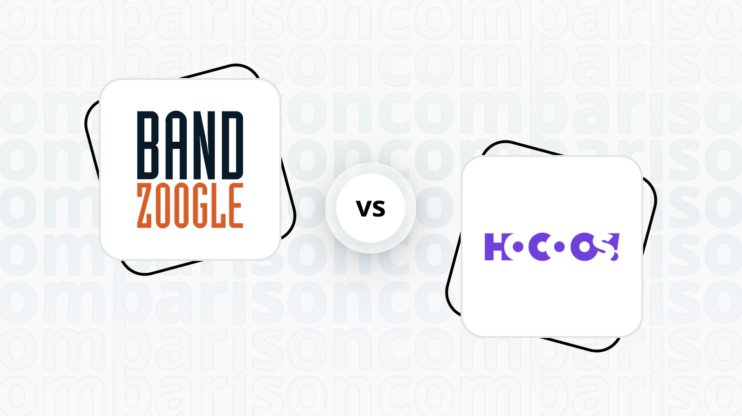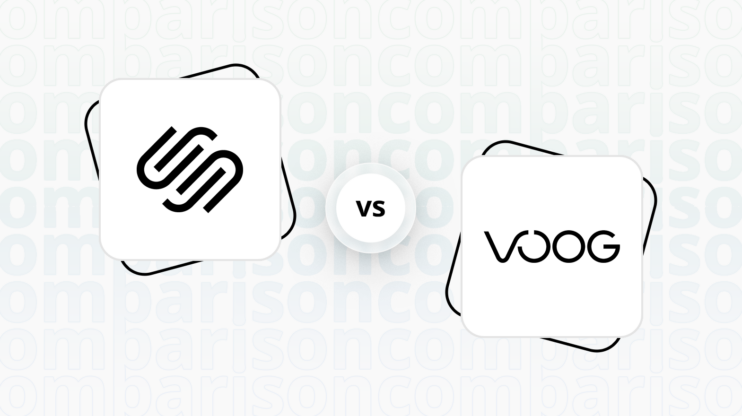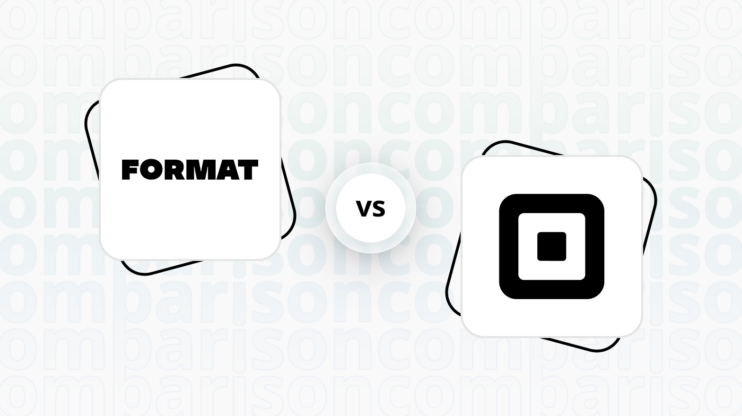Blocs vs SubHub: Final verdict
Blocs and SubHub both offer unique strengths, catering to different user needs and preferences.
-
Blocs (Overall Grade: 5.8/10)
is a powerful and user-friendly website builder designed specifically for Mac users. It excels in design functionalities, ease of use, and AI capabilities, making it an ideal choice for designers, developers, and anyone looking to create professional websites with minimal effort. When comparing Blocs vs SubHub, Blocs stands out for its intuitive visual interface, pre-designed blocks, and comprehensive learning resources. -
SubHub (Overall Grade: 5.6/10)
is tailored for creating and managing membership sites. It offers a range of tools for content creators and entrepreneurs aiming to build a community and monetize their content. Considering Blocs vs SubHub, SubHub is the preferred choice for those looking to start or grow their membership-based business, with its focus on ease of use, efficient subscription management, and strong customer support.

|

|
|
|---|---|---|
|
Design functionalities & templates |
7.5 |
6.8 |
|
Ease of use |
8.7 |
7.7 |
|
Ecommerce |
7.0 |
5.9 |
|
Website Editors |
7.5 |
6.9 |
|
Product testing options |
7.0 |
7.0 |
|
Price |
9.0 |
6.8 |
|
Hosting quality |
0 |
5.5 |
|
Website speed optimization |
5.2 |
5.6 |
|
Plugins and integrations |
6.8 |
5.7 |
|
Marketing features |
6.9 |
5.7 |
|
Customer support |
5.1 |
6.3 |
|
Security |
0.0 |
4.0 |
|
AI capabilities |
5.4 |
0 |
|
User Management |
1.4 |
5.2 |
Which one is the best for ecommerce: Blocs or SubHub?
 7.0
7.0
 5.9
5.9
Verdict
: Blocs is better suited for users looking for a flexible and powerful ecommerce solution, while SubHub is ideal for those focused on membership-based businesses with ecommerce capabilities.
-
Blocs
: With a score of 7.0, Blocs offers robust ecommerce features through integrations with leading service providers like Ecwid, Stripe, Snipcart, Paddle, and Gumroad. This makes it a versatile choice for creating comprehensive online stores. However, it may present a learning curve for beginners due to its extensive features and third-party integrations. -
SubHub
: Scoring 5.9, SubHub is tailored for creating and managing membership sites with ecommerce capabilities. It supports sales of physical goods, digital products, and pay-per-view content, making it suitable for content creators and entrepreneurs. However, it lacks support for distributing free products and does not manage the dispatch of physical goods, which may require additional logistics management by the seller.
Which one is the best for informational and business websites?
 7.5
7.5
 7.2
7.2
Verdict
: Blocs is the better choice for creating visually appealing and professional informational websites, especially for Mac users, while SubHub is more suited for membership-based informational sites.
-
Blocs
: Blocs is a powerful and user-friendly website builder designed specifically for Mac users. It allows users to create beautiful, modern websites without the need to write code, thanks to its intuitive visual interface and pre-designed blocks. Blocs offers a wide range of features including responsive design, pre-made templates, and integration with popular web standards and tools. This makes it an ideal choice for designers, developers, and anyone looking to create professional websites with minimal effort. Score: 7.5 -
SubHub
: SubHub is a website builder designed specifically for creating and managing membership sites. It offers a range of tools tailored for content creators and entrepreneurs who aim to build a community and monetize their content. The platform simplifies the process of setting up subscription models, managing member access, and providing exclusive content, making it an ideal choice for those looking to start or grow their membership-based business. With SubHub, users can create a professional and secure website without needing advanced technical skills, emphasizing ease of use and efficiency. Score: 7.2
Blocs vs SubHub: Detailed comparison
Design functionalities & templates
Design FunctionalitiesRepresents how well each platform allows for creative design and customization of websites.Score Components:
- Template Variety (30%): Range and quality of design templates.
- Customization (30%): Flexibility and options for design alterations.
- User Interface (20%): Ease and intuitiveness of the design process.
- Responsiveness (10%): Adaptability to different devices and screen sizes.
- Innovation (10%): Unique design features and tools.
 7.5
7.5
 6.8
6.8
🏆
Winner: Blocs.
If you’re a Mac user looking for a powerful and user-friendly website builder, Blocs is the preferred choice.
Blocs website builder offers a vast selection of design templates, boasting over 36 layouts for various website types, including business, e-commerce, personal portfolios, and photography, catering to a wide range of user needs. These templates are designed to be responsive, ensuring optimal display across different devices, from desktops to smartphones.
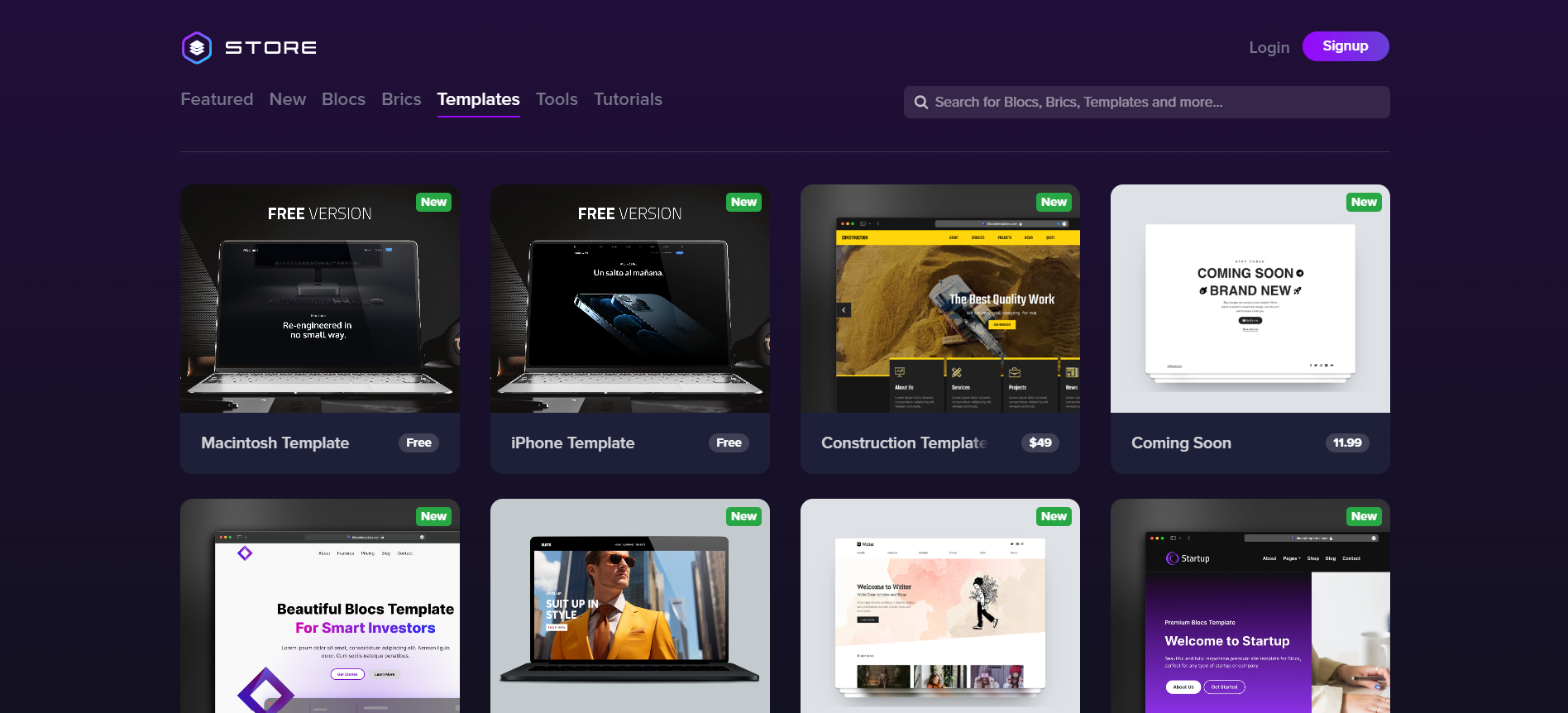
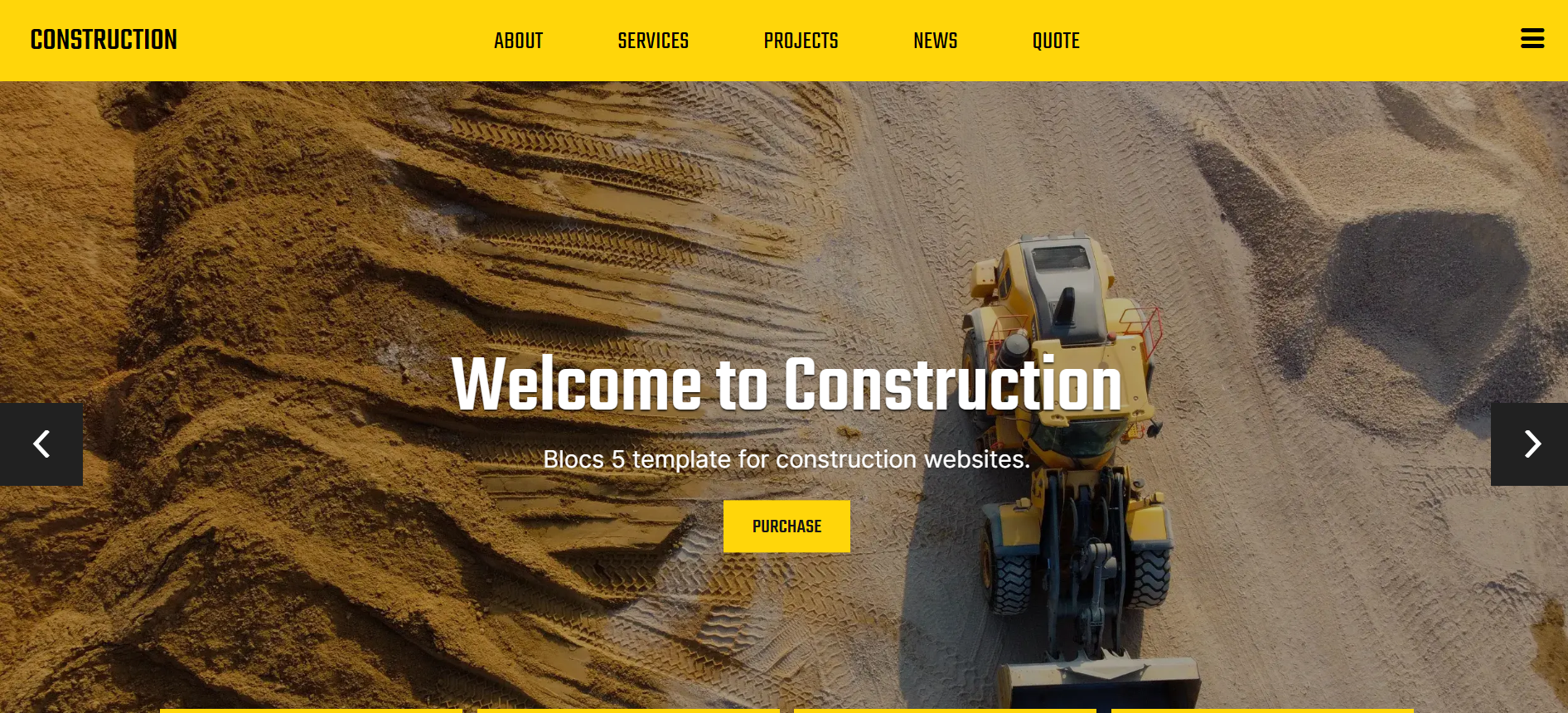
Compared to Blocs, SubHub website builder offers a variety of customizable membership website templates designed to cater to different needs and themes, including fitness, yoga, relationship, ministry, learning, craft, wellness, business, and modern living, among others. There are 14 specifically themed templates available, each designed to help users jump-start the design of their membership website homepages.
Get a head start on website creation with AI
Create a custom website tailored to your business needs 10X faster with 10Web AI Website Builder!
Ease of use
Ease of useReflects the platform’s overall user-friendliness.Score
Components:
- Learning curve (40%): Quickness and ease of getting started.
- Interface design (30%): Simplicity and intuitiveness of layout.
- User guidance (20%): Quality of tutorials and support.
- Flexibility (10%): Adaptability to various user skills.
 8.7
8.7
 7.7
7.7
🏆 Winner: Blocs
. Scoring 8.7, Blocs is highly regarded for its user-friendliness and versatility, particularly among Mac users. SubHub, with a score of 7.7, offers a user-friendly platform designed for building membership websites, but may lack some advanced features found on other platforms. If ease of use is a priority, Blocs is the clear winner in this category.
Learning Resources
🏆 Winner: Blocs
. While both platforms offer solid learning resources, Blocs goes a step further with its comprehensive suite of learning resources and active community forum, making it easier for users to learn and adapt.
Community of Users
🏆 Winner: Blocs
. Blocs has an active community forum where users can connect, share ideas, get design feedback, and find help. SubHub, on the other hand, lacks a large community of users across various platforms and does not have a community forum.
For ecommerce
EcommerceMeasures the platform’s effectiveness in supporting online business activities.Score Components:
- Ecommerce themes and templates (20%): Variety and design of templates.
- Product management (25%): Ease of managing and organizing products.
- Payment options (25%): Variety and convenience of payment methods.
- Ecommerce features (20%): Features for managing an ecommerce store.
- Integration (10%): Compatibility with external e-commerce tools and services.
 7.0
7.0
 5.9
5.9
Blocs and SubHub both offer ecommerce capabilities, but they cater to different user needs. Blocs, with a score of 7.0, is a powerful website builder that supports ecommerce through integration with leading service providers like Ecwid, Stripe, Snipcart, Paddle, and Gumroad. This allows for features such as buy buttons, checkouts, and complete storefronts. However, it might present a learning curve for complete beginners or those looking for simpler, more intuitive ecommerce solutions.
On the other hand, SubHub, scoring 5.9, is designed specifically for creating and managing membership sites. It supports various ecommerce features including sales of physical goods, digital products, and pay-per-view content, with a customizable storefront and product categories. However, it lacks support for distributing free products and does not manage the dispatch of physical goods, potentially requiring sellers to handle their shipping logistics.

|

|
|
|---|---|---|
|
Ecommerce themes and templates |
7.8 |
3.0 |
|
Product page customization |
6.5 |
6.5 |
|
Payment processing and commissions |
7.0 |
7.0 |
|
POS capabilities |
0.0 |
0.0 |
|
Payment gateways |
7.5 |
6.0 |
|
Product numbers |
6.0 |
5.0 |
|
Additional ecommerce features |
7.2 |
4.5 |
Blocs ecommerce features:
- Stripe integration
- Snipcart shopping cart integration
- Gumroad integration
- Ecwid integration
SubHub ecommerce features:
- Paypal and Stripe integration
- Physical and Digital product listings
- Pay-per view products
Ecommerce themes & templates
Blocs provides a range of ecommerce-specific templates, allowing users to quickly launch optimized online stores or business platforms. These premium templates are designed to be fast, visually appealing, and SEO-friendly, ensuring websites look great on all devices and load quickly. On the other hand, SubHub does not offer ecommerce specific templates.
Product page customization
Blocs primarily offers ecommerce features through third-party ecommerce platforms such as Ecwid, so the product page customization possibilities vary depending on which platform is integrated. SubHub, however, offers a range of product page customization options, allowing for the addition of physical items, digital downloads, and pay-per-view content. Features include the ability to manage product variants, upload images, and set visibility preferences.
Payment processing
When it comes to payment processing, Blocs supports ecommerce through integrations with third-party ecommerce providers, suggesting flexibility in the use of various payment gateways without directly listing them. Blocs does not charge transaction fees or commissions, however such fees may be charged by the payment gateways or e-commerce platforms themselves. SubHub supports two main payment gateways: Stripe and PayPal. These integrations allow for secure payment processing for subscriptions and store items using debit or credit cards. The platform itself does not charge commissions on transactions.
Website Editors
Website EditorsEvaluates the platforms’ website building and editing capabilities.Score Components:
- Customization tools (40%): Range and power of editing features.
- Editor usability (30%): User experience within the editor.
- Design flexibility (20%): Freedom in layout and design changes.
- Update and maintenance ease (10%): Simplicity of updating and maintaining the site.
 7.5
7.5
 6.9
6.9
🏆
Winner: Blocs
. With a score of 7.5, Blocs offers a user-friendly web design tool that enables the creation of modern, responsive websites without needing to code. It utilizes a block-based interface with drag-and-drop functionality, making web design accessible to designers and creatives without technical backgrounds. The app offers a variety of pre-designed blocks, integration options, and SEO tools to streamline the website creation process.
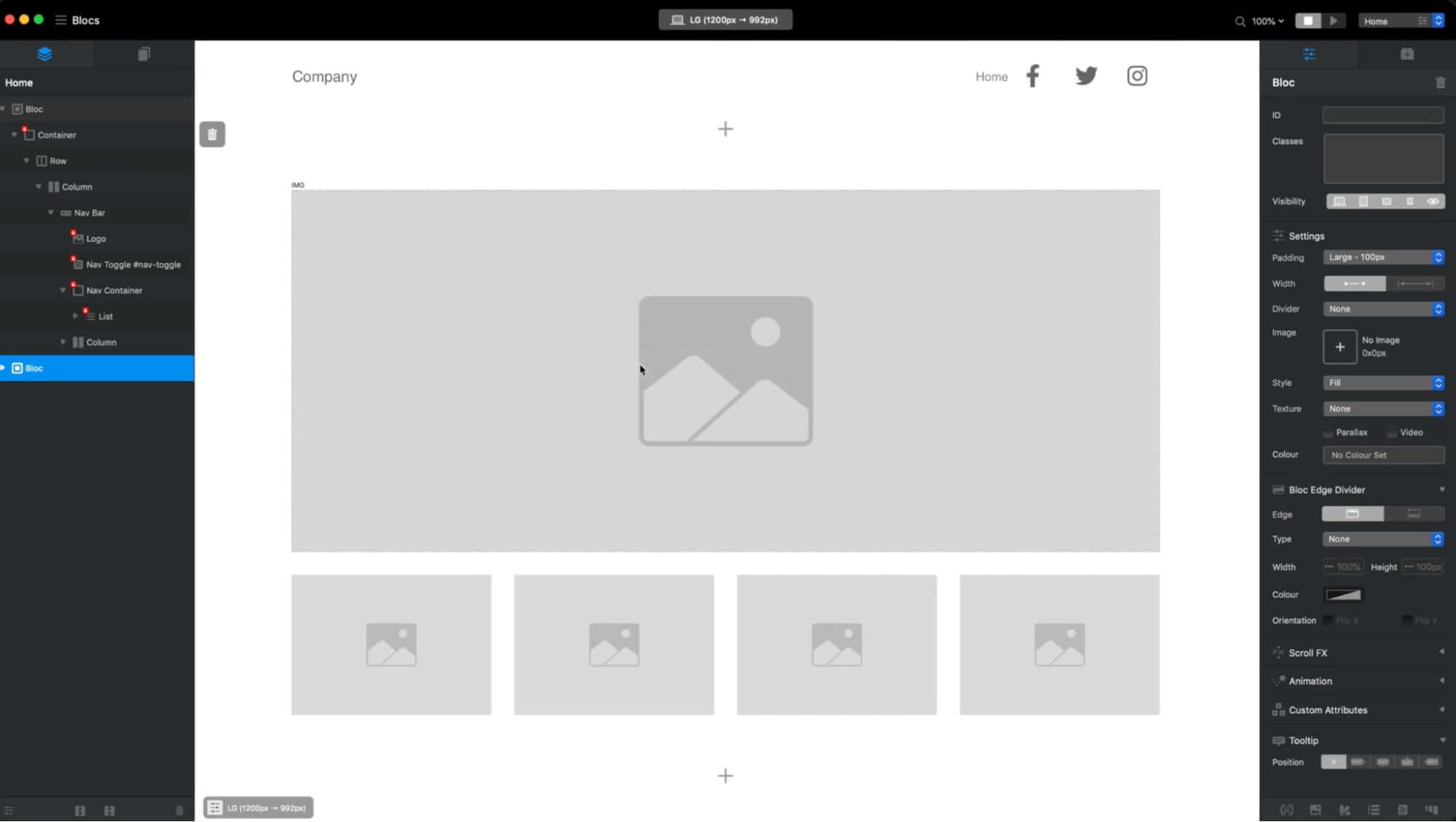
SubHub, scoring 6.9, offers a user-friendly website builder tailored for creating and managing membership sites. Its features encompass customizable templates, diverse content publishing options, and flexible subscription plans with seamless integration for recurring revenue through payment processors. Additionally, SubHub supports online course creation, provides marketing tools like landing page builders, and offers detailed analytics for monitoring website metrics.
Mobile editor/app
 8.5
8.5
 4.0
4.0
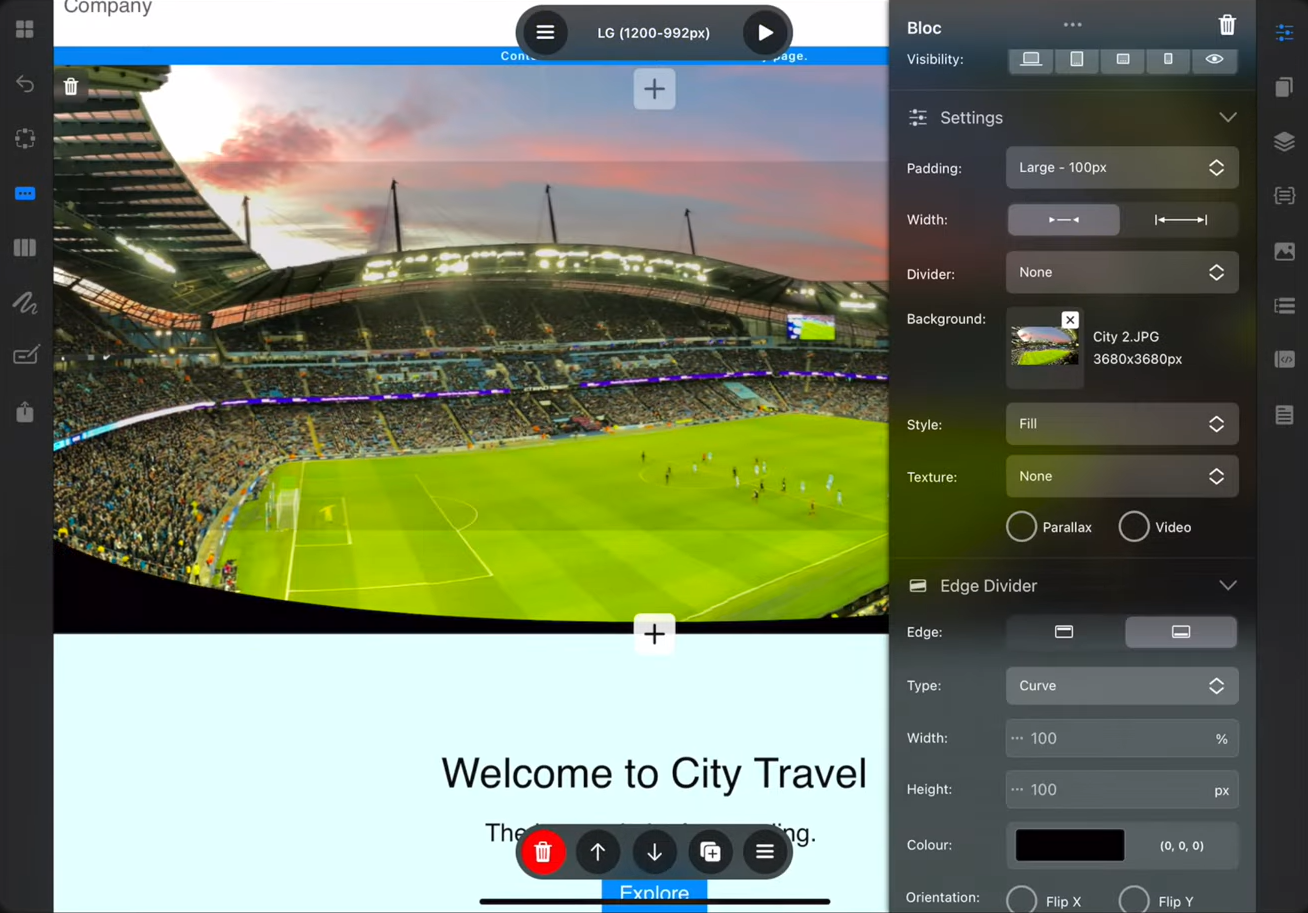
🏆
Winner: Blocs
. Both Blocs and SubHub offer mobile editing capabilities, but they cater to different needs and skill levels. Blocs has a dedicated mobile editor app specifically designed for the iPad, providing a touch-first interface and including all the essential features needed to create various types of websites. This offers a flexible and efficient solution for building professional and beautiful websites on an iPad.
SubHub, on the other hand, does not have a dedicated mobile editor app. Users can manage some content on their website using the mobile browser version, but it’s not possible to change the layout and design of the website on mobile. Therefore, Blocs is the clear winner in this category due to its dedicated mobile app and superior mobile editing capabilities.
In summary, Blocs receives a higher rating due to its dedicated mobile app and superior mobile editing capabilities, while SubHub is limited in its mobile editing capabilities and may be better suited for users who primarily work on a desktop.
Product testing options
Product Testing OptionsAssesses the options for trying out platform features before commitment.Score Components:
- Trial quality (40%): Extent and usefulness of the trial or free version.
- Feature accessibility (30%): How many features are available to test.
- Trial duration (20%): Length of the trial period.
- Ease of transition (10%): Smoothness of moving from trial to paid plans.
 7.0
7.0
 7.0
7.0
Overall Result
:
Tie
. Both Blocs and SubHub score 7.0 in product testing options. Blocs offers a trial version where users can test some of the features of the website builder, including premium ones, within a 14-day refundable period. SubHub, on the other hand, provides a 14-day free trial where users can test premium features.

|

|
|
|---|---|---|
|
Free Plan |
No | No |
|
Trial Duration |
Yes | 14 days |
|
Testing Premium Features |
Within 14-day refundable period | During the free trial |
|
Money Back Guarantee |
14-day money back guarantee | 7-day money back guarantee |
Price
PriceLooks at the cost-effectiveness and value for money of each platform.Score Components:
- Plan value (40%): What each pricing tier offers.
- Transparency and clarity (30%): Clearness of pricing structures.
- Flexibility of plans (20%): Range of options to suit different budgets.
- Hidden costs (10%): Additional expenses not included in the plan.
 9.0
9.0
 6.8
6.8
Blocs offers a one-time payment plan, making it a cost-effective choice for users who prefer not to deal with monthly or annual subscriptions. SubHub, on the other hand, offers a range of subscription plans with different features, catering to different user needs. However, Blocs has a higher price score, indicating better value for money.

|

|
|
|---|---|---|
|
$40-$50 |
Blocs Plus (+$49.99): An add-on to the Blocs 5 plan, providing additional features such as the ability to build custom WordPress themes without writing code, extract typography, assets, and color schemes from any website, a productivity-boosting image editor, a class styles library manager, and an SEO helper. Value for price: 8.5 |
Starter ($47/month): Up to 500 members, 5 GB storage, secure payment processing, course builder, 5 landing pages, e-commerce. Value for price: 6.5 |
|
$90-$100 |
Blocs 5 ($99.99): This plan offers a native Mac app with no subscription required. It allows building unlimited websites, works offline, includes animations & scroll FX, powerful interactions, no page limit, font manager, writer mode, auto backup, all V5 updates, and email support. A Blocs license can be used on one Mac and all future Blocs V5 updates come for free. Value for price: 8.0 |
Pro ($97/month): Up to 2000 members, 50 GB storage, removes SubHub branding, 15 landing pages, along with Starter features. Value for price: 7.5 |
|
$100+ |
No offering at this amount. |
Premium ($147/month): Unlimited members, 200 GB storage, email white labelling, 30 landing pages, plus all Pro features. Value for Price: 8.5 |
location. As a result in rare cases the prices displayed here can differ from the ones you see on their
websites.
Hosting quality
Hosting
qualityExamines the reliability and performance of the hosting solutions.Score Components:
- Uptime (40%): Consistency and reliability of website availability.
- Speed (30%): Loading times and performance.
- Bandwidth and storage (20%): Sufficiency of resources provided.
- Data centers (10%): Quality and distribution of hosting infrastructure.
 0
0
 5.5
5.5
Winner: SubHub
. SubHub offers managed cloud hosting with storage limitations depending on the plan and daily backups. However, it does not provide uptime statistics or guarantees, and does not disclose the locations of its data centers. Blocs, on the other hand, does not offer hosting services. This gives SubHub the edge in this category, despite its limitations.

|

|
|
|---|---|---|
|
Do they offer hosting? |
No | Yes, with limitations |
|
Data Centers: |
Not applicable | Not disclosed |
|
Type of hosting: |
Not applicable | Managed Cloud Hosting |
|
Uptime: |
Not applicable | Not disclosed |
|
Uptime Guarantee: |
Not applicable | Not disclosed |
Website Speed Optimization
Website Speed OptimizationEvaluates optimization of website loading timesScore Components:
- PageSpeed Score (30%): Google’s score indicating performance optimization.
- Loading Time (30%): The average time until a website is fully interactive.
- Mobile Optimization (15%): Optimization effectiveness for mobile devices.
- Resource Optimization (15%): Optimizing images, scripts, and other heavy resources.
- CDN Usage (10%): Use of CDN to enhance speed across geolocations.
 5.2
5.2
 5.6
5.6
🏆 Winner: SubHub
Both Blocs and SubHub have strategies in place for website speed optimization, but SubHub edges out Blocs with a slightly higher Website Speed Optimization score.

|

|
|
|---|---|---|
|
Focus |
WebP Generation |
Image Optimization, Caching, Mobile Optimized design |
|
Performance Tools |
Not disclosed |
Not disclosed |
|
Key Strategies |
WebP Generation |
Image Optimization, Caching, Mobile Optimized design |
|
Load Times |
Varies depending on optimization and website complexity |
Varies depending on optimization and website complexity |
|
Page Speed Scores Range |
Not disclosed |
Not disclosed |
|
Core Web Vitals Improvement |
Not disclosed |
Not disclosed |
Blocs, a website builder designed specifically for Mac users, focuses on WebP Generation for speed optimization. However, the specifics of its load times, PageSpeed scores, and Core Web Vital improvements are not disclosed.
SubHub, a website builder designed for creating and managing membership sites, uses Image Optimization, Caching, and Mobile Optimized design as its key strategies for speed optimization. Like Blocs, SubHub does not disclose the specifics of its load times, PageSpeed scores, and Core Web Vital improvements. However, it has a slightly higher Website Speed Optimization score than Blocs, which gives it a slight edge in this comparison.
Get a head start on website creation with AI
Create a custom website tailored to your business needs 10X faster with 10Web AI Website Builder!
Plugins and integrations
Plugins and integrationsMeasures the range and effectiveness of additional plugins and integrations.Score Components:
- Variety of options (40%): Range of available add-ons.
- Integration smoothness (30%): Ease of integrating plugins into the site.
- Quality of plugins (20%): Functionality and reliability of the options.
- Custom integration capabilities (10%): Support for custom or third-party integrations.
 6.8
6.8
 5.7
5.7
🏆 Winner: Blocs.
With a score of 6.8, Blocs leads over SubHub, which scores 5.7. Blocs offers a variety of custom-made add-ons and extensions that enhance web design capabilities, facilitating a richer web development experience. On the other hand, SubHub, while offering a comprehensive toolkit for creating and managing membership sites, has a limited range of external integrations.
Blocs’ extensions and integrations unlock advanced functionalities beyond its core features, allowing for the addition of sophisticated e-commerce systems, dynamic content via CMS integration, and enhanced SEO tools. SubHub’s plugins and integrations expand the capabilities of the website builder beyond its core features, allowing for enhanced user experiences, broader payment options, and improved content management.
However, Blocs’ premium extensions available through platforms like Blochead and Blocs Builder, including Dynamic Breakpoints, Tab Anything, Card Designer, Read More, Scroll FX Extra, TextBloc, Modal Designer, and Smart Nav, give it an edge over SubHub’s integrations with Stripe, PayPal, MailChimp, Vanilla forums, Affiliatly, and iDev Affiliate.
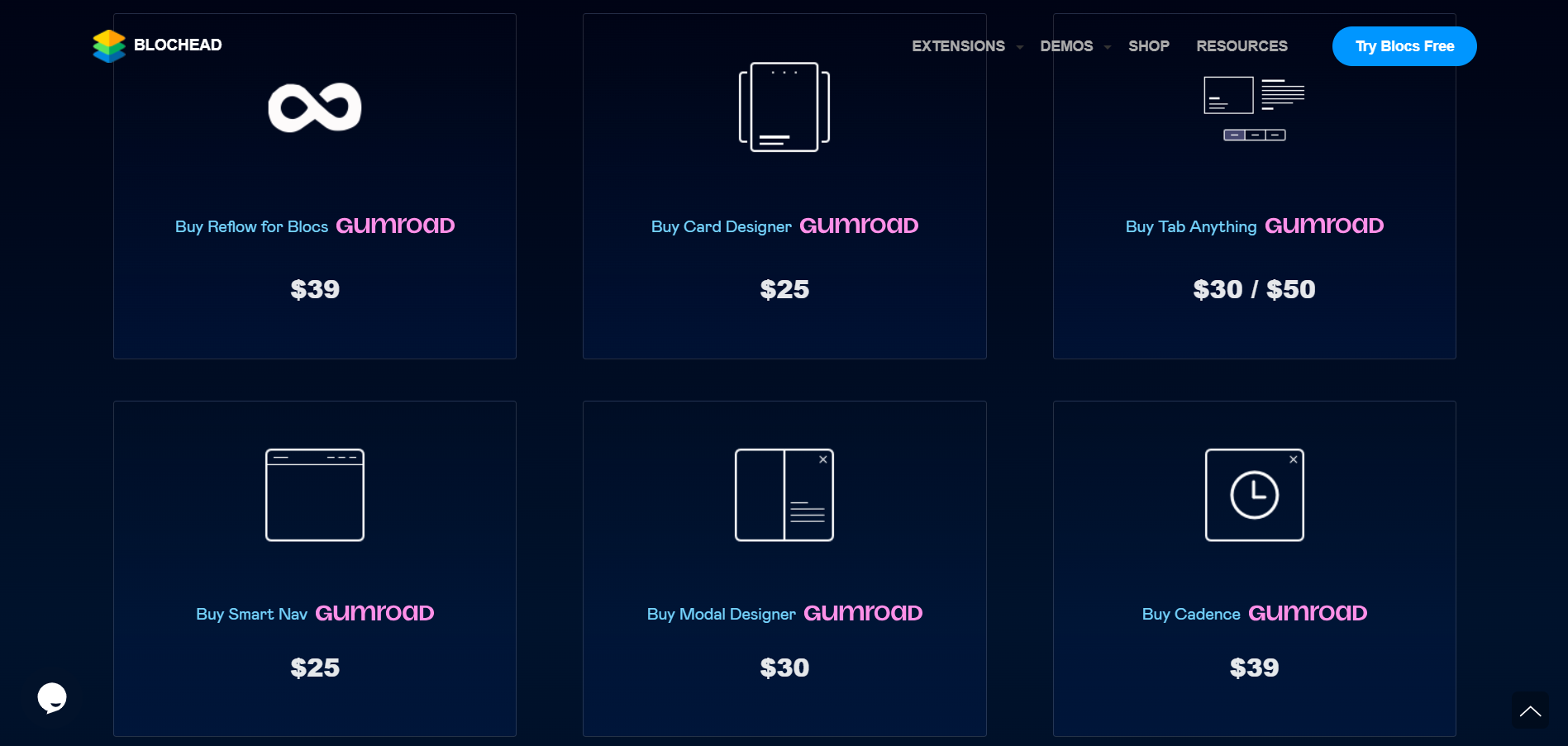
Marketing Features
Design FunctionalitiesRepresents how well each platform allows for creative design and customization of websites.Score Components:
- Template Variety (30%): Range and quality of design templates.
- Customization (30%): Flexibility and options for design alterations.
- User Interface (20%): Ease and intuitiveness of the design process.
- Responsiveness (10%): Adaptability to different devices and screen sizes.
- Innovation (10%): Unique design features and tools.
 6.9
6.9
 5.7
5.7
🏆
Overall Winner: Blocs
. Blocs has a slightly higher marketing features score than SubHub. However, both platforms offer a range of marketing tools, with SubHub providing more comprehensive features in some areas.
| Marketing Features |

|

|
|---|---|---|
|
SEO Tools |
|
|
|
Email Marketing |
Yes, with Mailchimp Form integration |
Yes, both built in and through integration of Mailchimp |
|
Blogging |
|
|
|
Social Media Integration |
Yes |
No |
|
Analytics and Reporting |
Yes, via Google Analytics integrations |
Yes |
|
Ads and Promotions |
No |
Yes |
Customer Support
Customer supportEvaluates the quality and availability of support options.Score Components:
- Response time (40%): Speed of support responses.
- Support quality (30%): Effectiveness and helpfulness of the support.
- Availability (20%): Range of support channels (phone, chat, email).
- Resource richness (10%): Quality of self-help and educational materials.
 5.1
5.1
 6.3
6.3
🏆 Winner: SubHub
. In the Blocs vs SubHub comparison, SubHub takes the lead in customer support with a score of 6.3. SubHub offers email support and a detailed support portal for submitting specific requests, which can include attachments for more complex issues. Additionally, their FAQ section provides immediate answers to common questions, ensuring users have access to necessary information promptly.
Blocs, on the other hand, scores 5.1 in customer support. It primarily relies on self-service options such as articles and a community forum. While this can be sufficient for basic queries, users facing more complex issues might find the lack of direct, personalized support challenging. This setup may leave some users feeling unsupported, particularly when they encounter complex issues that require direct, personalized support.
Security
SecurityLooks at the platforms’ security measures and data protection.Score Components:
- Data protection (40%): Safeguards for user and customer data.
- SSL and encryption (30%): Implementation of secure connections.
- Compliance (20%): Adherence to industry security standards.
- Regular updates (10%): Frequency of security updates and patches.
 0.0
0.0
 4.0
4.0
🏆
Winner: SubHub
. SubHub’s commitment to data privacy and protection is evident in their comprehensive privacy policy, which outlines their adherence to GDPR and CCPA regulations. They provide clear information about the types of data they collect and how it is used, emphasizing transparency and user rights.
On the other hand, Blocs does not provide any information about their security measures. As a website builder that primarily focuses on offline website building, the security measures for Blocs websites can vary widely depending on the hosting provider chosen by the user. This lack of information and the zero security score make Blocs less appealing from a security standpoint.
AI Capabilities
AI capabilitiesMeasures the effectiveness of AI-driven features and tools.Score Components:
- Automation efficiency (40%): Impact of AI on streamlining processes.
- Personalization (30%): AI-driven customization for users or customers.
- AI-Assisted design (20%): Role of AI in website design and functionality.
- Data analysis (10%): Use of AI in interpreting user data and analytics.
 5.4
5.4
 0
0

|

|
|
|---|---|---|
|
AI Builder |
|
|
|
AI Ecommerce features |
|
|
|
AI Content Generation |
Blocs incorporates an innovative AI Assistant for content generation and editing |
|
|
Additional AI features |
Blocs AI Assistant introduces advanced AI capabilities to the design environment |
|
🏆 Winner: Blocs
. Blocs, with a score of 5.4, incorporates an AI Assistant that enhances the user experience by allowing for the generation and editing of content directly within a Blocs project. This feature is accessible through the Main Menu or a keyboard shortcut, offering seamless integration. The AI Assistant also supports selecting target areas within the project for content generation or modification, including textual content on the design canvas and code within the Blocs Code Editor, facilitating a versatile and interactive design process. On the other hand, SubHub does not have any AI capabilities.
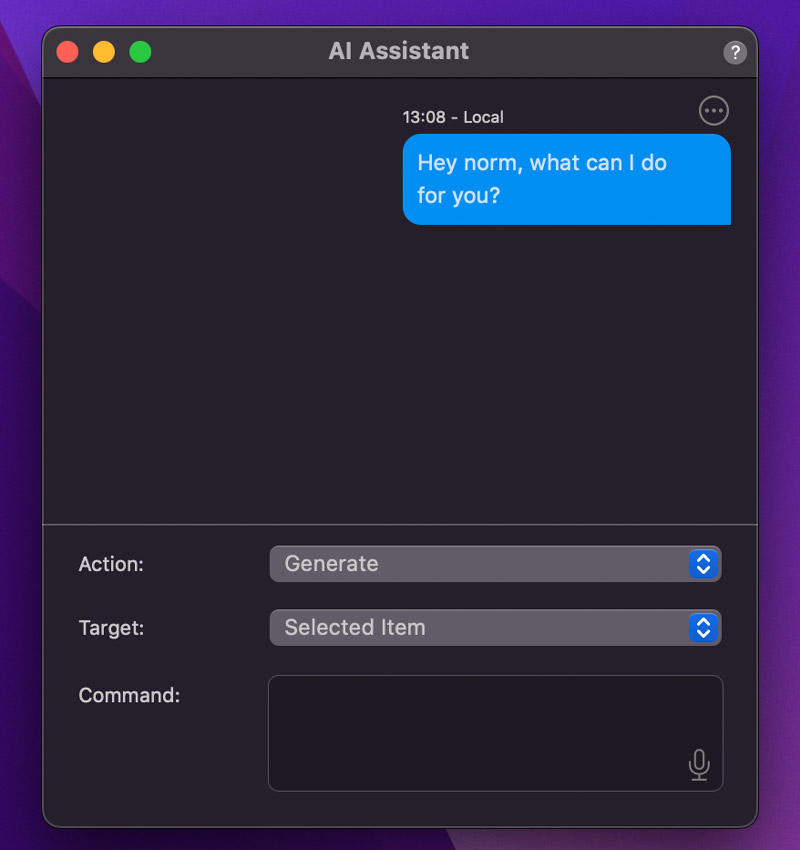
User Management
User ManagementAssesses the platforms’ capabilities in managing user roles, permissions, and accessibility.Score Components:
- Role Customization (40%): Flexibility in creating and defining user roles and
permissions. - Ease of Management (30%): User interface and tools for managing users.
- Access Control (20%): Effectiveness of access control measures for different user
levels. - Scalability (10%): Ability to manage a growing number of users efficiently.
 1.4
1.4
 5.2
5.2
🏆 Winner: SubHub
. User management is a key aspect of website building and maintenance. Blocs and SubHub offer different levels of user management capabilities.
- Blocs allows only one user to build and edit a website.
- SubHub allows multiple user accounts, however the platform does not specify the number of accounts supported.
SubHub User Roles and Access Levels:
| Role | Description | Access Highlights |
|---|---|---|
| Administrator | Full access to the platform except for Homepage and Course Editor. | Can manage all aspects of the platform, including content, store, and member management. |
| Content Management | Focuses on managing and organizing content within the platform. | Can access and manage content-related features but does not have access to Homepage or Course Editor. |
| Store (access only) | Specializes in handling the platform’s store features. | Limited to store management functions; no access to Homepage, Course Editor, or member management. |
| Member Manager (access only) | Oversees member accounts, roles, and subscriptions. | Can manage members and their subscriptions but cannot access Homepage, Course Editor, or store management. |
| Origin Admin Email | The initial administrator with the highest level of access, including Homepage and Course Editor. | Exclusive access to Homepage and Course Editor, on top of what the Administrator role provides. |
Additional Features

|

|
|
|---|---|---|
|
SSL Certificate |
|
|
|
Custom Domain |
|
|
|
Free Custom Domain Included |
|
|
|
International Domains |
|
|
|
Mobile Responsive |
|
|
|
Page Speed |
|
|
|
Website Builder Mobile App |
|
|
|
Convert a Website To An App |
|
|
|
Website Analytics |
|
|
|
Multilingual Sites |
|
|
|
Multiple Users |
|
|
Blocs vs SubHub: User Feedback
Blocs website builder is praised for its intuitive drag-and-drop interface, making it accessible to users with varying levels of web development expertise. Its extensive library of templates and customization options, including the ability to add custom CSS and JavaScript, facilitates the rapid creation of diverse and visually appealing websites. However, users report encountering bugs and express a desire for more sophisticated customization features, indicating room for improvement. Overall, Blocs is valued for significantly streamlining the web design process, supported by a strong community and educational resources, despite its learning curve and occasional technical glitches.
User feedback on SubHub presents a mix of positive and negative experiences, emphasizing the platform’s feature-rich environment and customizable templates. Users appreciate the flexibility and the quality of customer service, highlighting the platform’s continual updates and support as key benefits. However, some users express dissatisfaction with aspects such as the platform’s interface, lack of community features, and service fees for ticket resale. Concerns were also raised about the custom design service and mobile-friendly solutions taking longer than expected.
The making of this blog
We followed a clear, step-by-step process to write and research this article.
Blocs vs SubHub: FAQ
Can I use Blocs if I'm not on a Mac?
Is SubHub suitable for selling physical products?
How do Blocs and SubHub compare in terms of design flexibility?
Which platform is better for building a membership site?
Can I test Blocs or SubHub before making a purchase?
What kind of support can I expect from Blocs and SubHub?
Are there any hidden costs with Blocs or SubHub?










